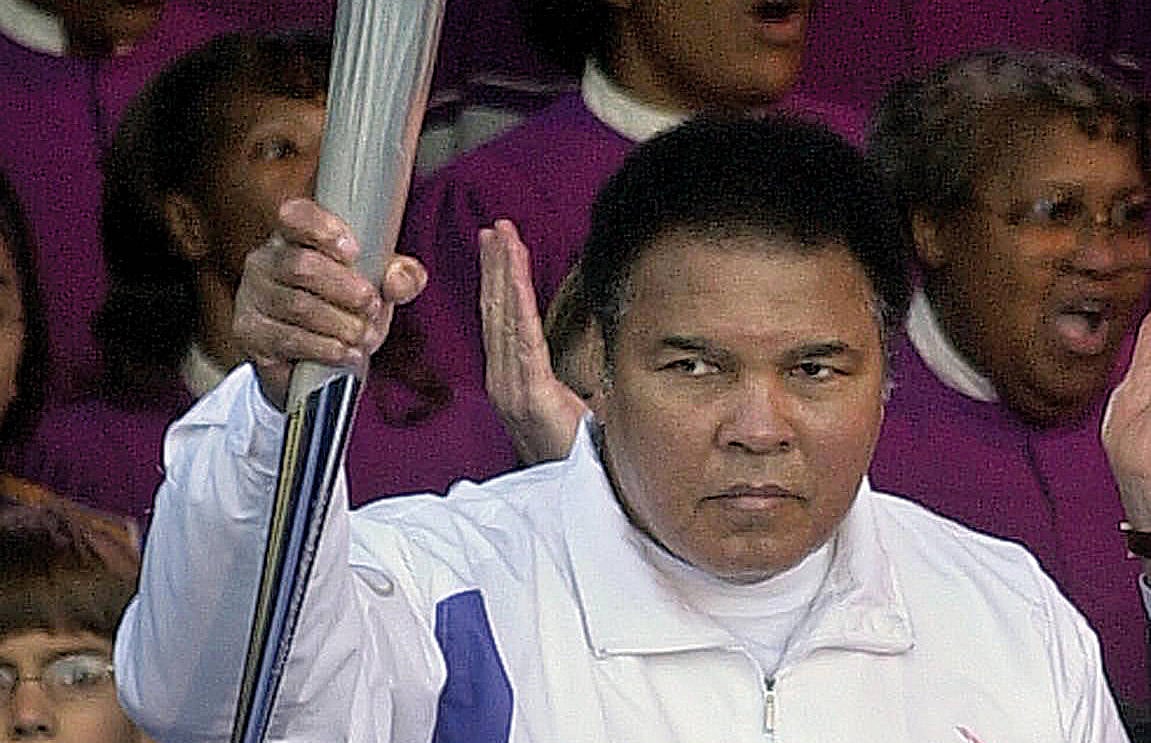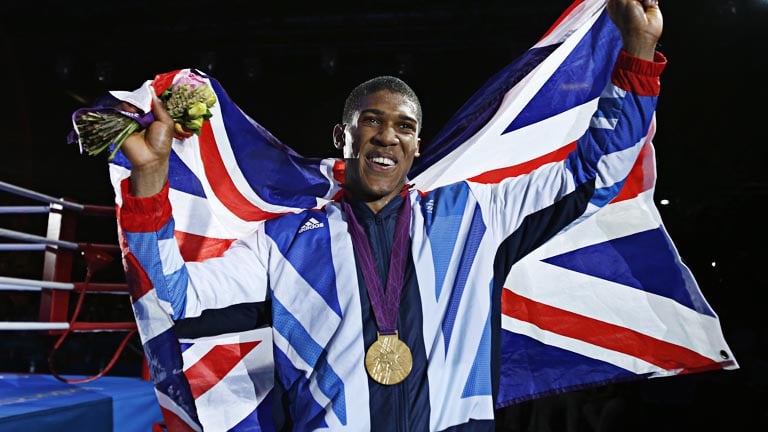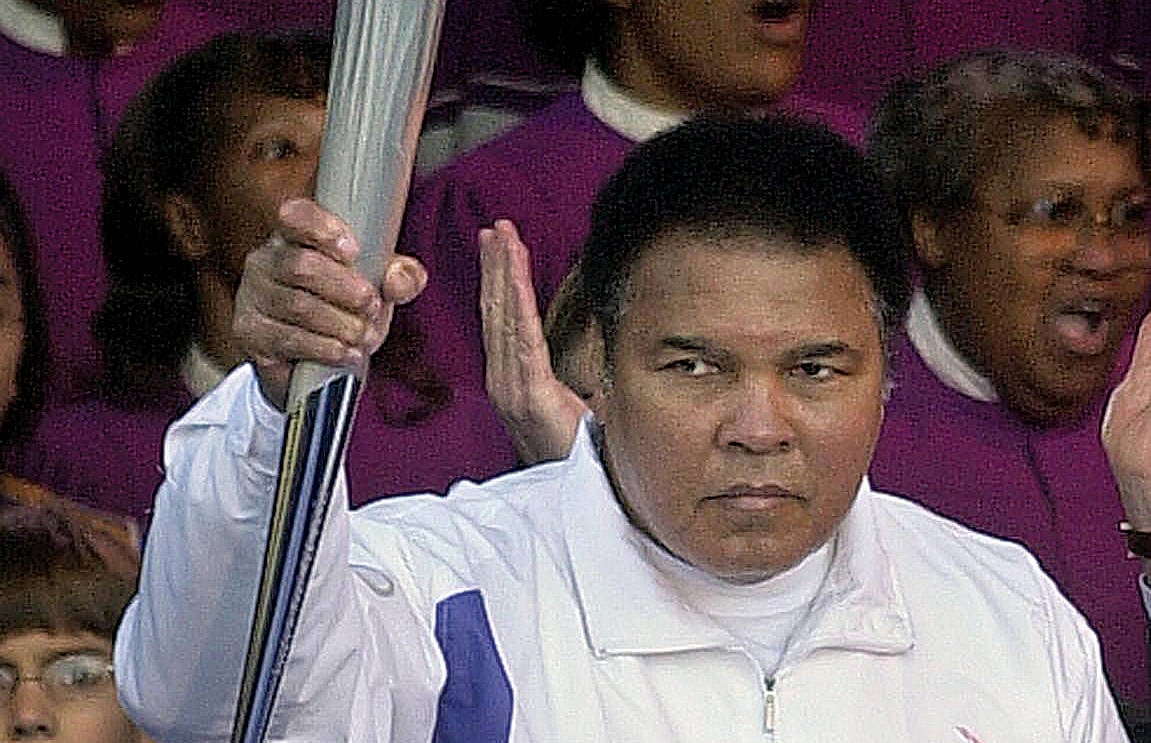Paris 2024 is now well underway. Before the tournament, Taylor O’Higgins dipped into the archive, remembering some of the Olympics’ most memorable moments.
From future stars such as Muhammad Ali, Sugar Ray Leonard, George Foreman and Oscar De La Hoya announcing themselves to the world with Olympic gold – to the historic achievements of Teófilo Stevenson, Félix Savón and László Papp – boxing at the Olympics has delivered some truly iconic – and often infamous – moments over the past century.
Action Images
With the sport’s future at the Games increasingly in doubt following a much-publicised feud between IBA and the International Olympic Committee, Boxing News looks back at some of the Olympics most iconic moments, with Paris 2024 only a few days away.
Foreman wins heavyweight gold for USA at Mexico City 1968
Even as an amateur, George Foreman was a force to be reckoned with. The 19-year-old American came into the 1968 Olympics with an unremarkable 16-4 record but displayed his trademark power with wins over Romanian Ion Alexe and Giorgio Bambini of Italy inside the distance, before facing the Soviet Union’s Jonas Čepulis in the final.
Čepulis, an experienced amateur with over 220 fights on his record, soon found himself bloodied and battered around the ring by the younger man as Foreman forced a referee stoppage to become the Olympic heavyweight champion. The American walked around the ring carrying a miniature U.S. flag in celebration, and would later claim that winning Olympic gold was the highlight of his remarkable career.
Leonard shines on way to light-welterweight gold at Montreal 1976
The 1976 US boxing team was stacked with talent heading into the Olympic Games in Montreal, with Howard Davis Jr, Leon Spinks, Michael Spinks and a 20-year-old by the name of Sugar Ray Leonard amongst its standouts.
The handsome, well-mannered Leonard, who competed with a picture of his three-year-old son pinned to his sock, quickly became a media darling of the games, catching the eye with his agility and finesse in the ring.
Yet despite his nickname, Leonard was anything but sweet – an accomplished amateur with several national titles under his belt, the American was a vicious boxer-puncher with power in both hands.
Leonard advanced to the light-welterweight final with wins over Valery Limasov of the Soviet Union and East Germany’s Ulrich Beyer, but his opponent in the final – fearsome Cuban knockout artist Andrés Aldama – had won all five of his bouts inside the distance and promised to be a much tougher test.
Leonard passed with flying colours, however, dropping the Cuban in the second round and forcing a standing eight count before the final bell. The American was awarded a 5:0 decision and Olympic gold, announcing his retirement from boxing immediately afterwards to focus on university. What happened next, as they say, is history.
Stevenson wins his third Olympic gold for Cuba 1980
At the peak of his powers, Teófilo Stevenson was the most famous man in Cuba besides Fidel Castro himself. A national hero and symbol of the island’s defiance against the perceived excesses of capitalism, Stevenson emerged as the star of the 1976 Olympics in Montreal after stopping every opponent he faced en route to a second consecutive heavyweight gold.
Lucrative offers to turn professional soon followed, with a dream match-up against ageing world champion Muhammad Ali teased in 1977. Stevenson refused to turn his back on his homeland, however, declaring ‘what is one million dollars compared to the love of eight million Cubans?’
The opportunity soon passed with Ali losing to Leon Spinks the following year, while Stevenson continued his dominance of the amateurs with a third Olympic crown at Moscow 1980 after besting the Soviet Union’s Pyotr Zayev in the final. The win cemented Stevenson’s status in sporting immortality, joining the great László Papp as the second boxer to claim a hat trick of Olympic golds.
USA Dream Team dominates at Los Angeles 1984
Headlined by generational talents in Pernell Whitaker, Mark Breland and Evander Holyfield – as well as an impressive supporting cast that included the likes of Meldrick Taylor, Tyrell Biggs, Steve McCrory, Paul Gonzales, Henry Tillman, Frank Tate and Jerry Page – the 1984 U.S. squad may well be the greatest Olympic boxing team of all-time.
The Americans won a record-breaking 11 medals in Los Angeles, 9 of which were gold, and could have done even better if not for Holyfield being controversially disqualified in the light-heavyweight semifinals.
While the absence of Cuba and the Soviet Union from the Games puts a sizeable asterisk next to their achievements, the Class of ’84 introduced a new era of exciting young stars to the world with Whitaker and Holyfield going on to become all-time greats in the professional ranks.
Jones Jr robbed of Olympic gold at Seoul 1988
Amateur boxing has courted its fair share of controversy over the years, but the sport’s darkest moment undoubtedly came at the 1988 Olympics in Seoul when a 19-year-old Roy Jones Jr. took on home favourite Park Si-Hun in the light-middleweight final. Jones stormed into the gold medal bout with a string of dazzling performances, while Park Si-Hun’s route to the final was anything but plain sailing with the Korean needing some help from the judges to squeak by Italy’s Vincenzo Nardiello.
The final itself quickly descended into one-way traffic, Jones’ blazing hand-speed and athleticism clearly too much for the overmatched Park to live with. Yet in spite of Jones’ dominance – which included a standing eight count in the second round – Park was inexplicably announced as the winner on a 3:2 split, to the disbelief and disgust of everyone in attendance.
Park himself apologised to Jones afterwards, with the American awarded the Val Barker trophy for most outstanding boxer at the Olympics as a consolation. The IOC immediately launched an investigation into the bout which resulted in the overhaul of amateur boxing’s scoring system, and several years later it emerged that judges had been wined and dined by the Korean boxing federation during the tournament. To this day, amateur boxing’s reputation has never truly recovered.
De La Hoya dedicates gold to late mother at Barcelona 1992
Nicknamed ‘the Golden Boy’, Oscar De La Hoya – a 19-year-old Mexican-American with choirboy looks and a wicked left hook – had only one goal in mind at the 1992 Olympics – gold. Spurred on by the wishes of his late mother who had succumbed to breast cancer two years prior, De La Hoya refused to be denied in Barcelona as he surged to gold in the lightweight division, beating reigning world champion Marco Rudolph of Germany 7-2 in the final.
The American pointed to the sky in tribute to his mother during the medal ceremony, and his remarkable story made De La Hoya a household name. The Golden Boy went on to win world titles in six weight-classes as a professional as well as becoming one of the biggest draws in boxing history.
Ali lights the Olympic Flame at Atlanta 1996
One of the most enduring moments in Olympic history – Muhammad Ali, whose career was launched as a young Cassius Clay with light-heavyweight gold at the 1960 Olympics, returning from self-imposed exile to light the Olympic Flame at Atlanta 1996. The Greatest, robbed of his vitality by the onset of Parkinson’s disease, held the torch in a trembling hand for all the world to see.
Yet Ali refused to hide his vulnerability and showed extraordinary courage in the face of debilitating illness. Ali’s bravery was always a hallmark of his career; from missing years of his prime after refusing to be drafted in Vietnam to legendary feats of willpower in epics against George Foreman and Joe Frazier.
This was a very different battle, however, and one that Ali approached with the same perseverance and dignity that made him the most revered athlete of the 20th Century. A moment that perfectly captures the Olympic spirit, and one that will live long in the memory.

Boxing icon Muhammad Ali holding the Olympic torch. (CURTIS COMPTON/AFP/Getty Images)
Tearful Mayweather leaves Atlanta 1996 with bronze
A 19-year-old Floyd Mayweather Jr looked every bit a future pound-for-pound star in Atlanta with a series of impressive wins over a stacked featherweight field. After edging past the highly-regarded Lorenzo Aragón of Cuba in the quarter-finals – becoming the first American to beat a Cuban at the Olympics in over 20 years – Mayweather faced three-time world champion Serafim Todorov for a place in the final.
Despite seemingly dominating the bout, ‘Pretty Boy’ Floyd lost a highly-controversial 10:9 decision to the Bulgarian with many clean punches failing to be scored by the judges at ringside. The US team unsuccessfully protested the result, and a tearful Mayweather was forced to settle for bronze with Todorov going on to claim the silver medal. It was the last time Mayweather would taste defeat in his career, retiring with a perfect 50-0 record as a professional and a legacy as the greatest boxer of his generation.
Teen sensation Khan falls short against Kindelán at Athens 2004
Amir Khan’s rise was nothing short of meteoric, with the 17-year-old Bolton native going from competing at the Junior World Championships to the 2004 Olympics in Athens that same year.
Britain’s sole boxing representative at the Games, Khan captured the hearts of a nation with a number of impressive displays en route to the lightweight final, regularly drawing in an audience of millions back at home. There, the teen faced Cuban maestro Mario Kindelán – the reigning Olympic champion – in a rematch of their bout at a pre-Olympic test event several months earlier which was handily won by the more experienced Kindelán.
Despite a brave effort, Khan was forced to settle for silver after losing 30-22 on points to the Cuban great. Kindelán, who retired following his second successive Olympic title in Athens, declared the Brit a tremendous boxer who would go on to enjoy a highly successful career. His words were ultimately prophetic, as Khan became a world champion in the pro ranks as well as a star of British boxing.
Rigondeaux repeats as Olympic champion at Athens 2004
Having already won bantamweight gold at Sydney 2000 on his 20th birthday, Cuba’s Guillermo Rigondeaux was widely-regarded as the best amateur boxer of his generation heading into the 2004 Olympics. With only one loss in his previous 155 fights, the Cuban was majestic once again in Athens and outclassed his opponents to repeat as the Olympic champion after beating Thailand’s Worapoj Petchkoom in the final.
Crowned with an olive wreath at the medal ceremony, Rigondeaux would spend three more years in the amateurs – compiling a record of 463 wins and 12 loses – before leaving his homeland to turn professional in America.
Taylor inspires a nation with gold at London 2012
Katie Taylor has always been a trailblazer. From competing in Ireland’s first sanctioned female boxing match at 15 years old to winning five World Championship titles on the bounce, the Bray boxer was instrumental in the fight to get women’s boxing accepted as an Olympic sport.
Taylor used her growing popularity amongst Irish fans to campaign for inclusion at the Games, taking part in showcase bouts across the globe to convince the IOC that she was just as deserving of recognition and respect as her male counterparts. After years of setbacks and disappointment, female boxing made its long-overdue debut at the London 2012 Olympics, with Taylor chosen as Ireland’s flag bearer at the opening ceremony.
The Irish star went on to realise her Olympic dream with gold at lightweight, beating the Soviet Union’s Sofya Ochigava in the final and cementing her status as a sporting icon around the world. Taylor’s impact on Irish and women’s boxing continues to be felt today, with Kellie Harrington, Aoife O’Rourke, Michaela Walsh, Grainne Walsh, Jennifer Lehane and Dana Moorehouse carrying on her Olympic legacy in Paris.
Lomachenko, Usyk lead Ukrainian golden generation at London 2012
Ukraine established itself as a powerhouse of amateur boxing at the 2011 World Boxing Championships with an impressive haul of four gold medals and one silver. Spearheaded by the brilliant duo of Vasily Lomachenko and Oleksandr Usyk, Ukraine’s golden generation came into London 2012 as arguably the finest national side in the sport.
Although they couldn’t quite match the lofty heights of the previous year, in part due to Ievhen Khytrov and Oleksandr Gvozdyk suffering controversial exits, Lomachenko and Usyk both delivered for their country after winning gold at lightweight and heavyweight.
Lomachenko became a two-weight Olympic champion and affirmed his status as the best amateur on the planet – finishing his career with a legendary 396-1 record – while Usyk avenged previous losses to Artur Beterbiev and Clemente Russo en route to topping the podium.
Home hero Joshua becomes Olympic champion at London 2012
A latecomer to the sport, Watford-born Anthony Joshua took up boxing at 18 and quickly emerged as one to watch in the super-heavyweight division after becoming national champion in under 20 fights.
An impressive runner-up finish at the 2011 World Championships soon followed, with AJ tipped as a potential gold medallist for Team GB at the London 2012 Olympics. Despite his lack of international experience and a tough draw – which included opponents such as Erislandy Savón, Zhilei Zhang and Ivan Dychko – the Brit advanced to the final, where he faced reigning Olympic champion Roberto Cammarelle of Italy.
In a tight contest, a strong final round saw Joshua come from behind to beat his rival +18:18 on count-back and claim Olympic gold. A star was instantly born, with Joshua turning professional the following year and going on to become the biggest name in British boxing.

Action Images/John Sibley
Conceição comes from behind to knock out Khyzhniak in Tokyo 2020
Few things at Tokyo 2020 seemed as certain as Oleksandr Khyzhniak winning gold at middleweight – the Ukrainian had gone undefeated since moving down to 75kg five years earlier, and had brutalised just about everyone that the division had to offer.
Yet in one of the biggest upsets in boxing history, Brazil’s Hebert Conceição – down on the cards heading into the final round against a seemingly unstoppable wrecking ball – summoned a perfect left hook from out of nowhere to send Khyzhniak to the canvas for the first time in his career.
The Ukrainian immediately got back to his feet, but with his legs clearly unsteady the referee waved the fight off to crown Conceição as the new Olympic champion. An unforgettable ending to the Brazilian’s run in Tokyo and one of the most memorable moments in recent years.

